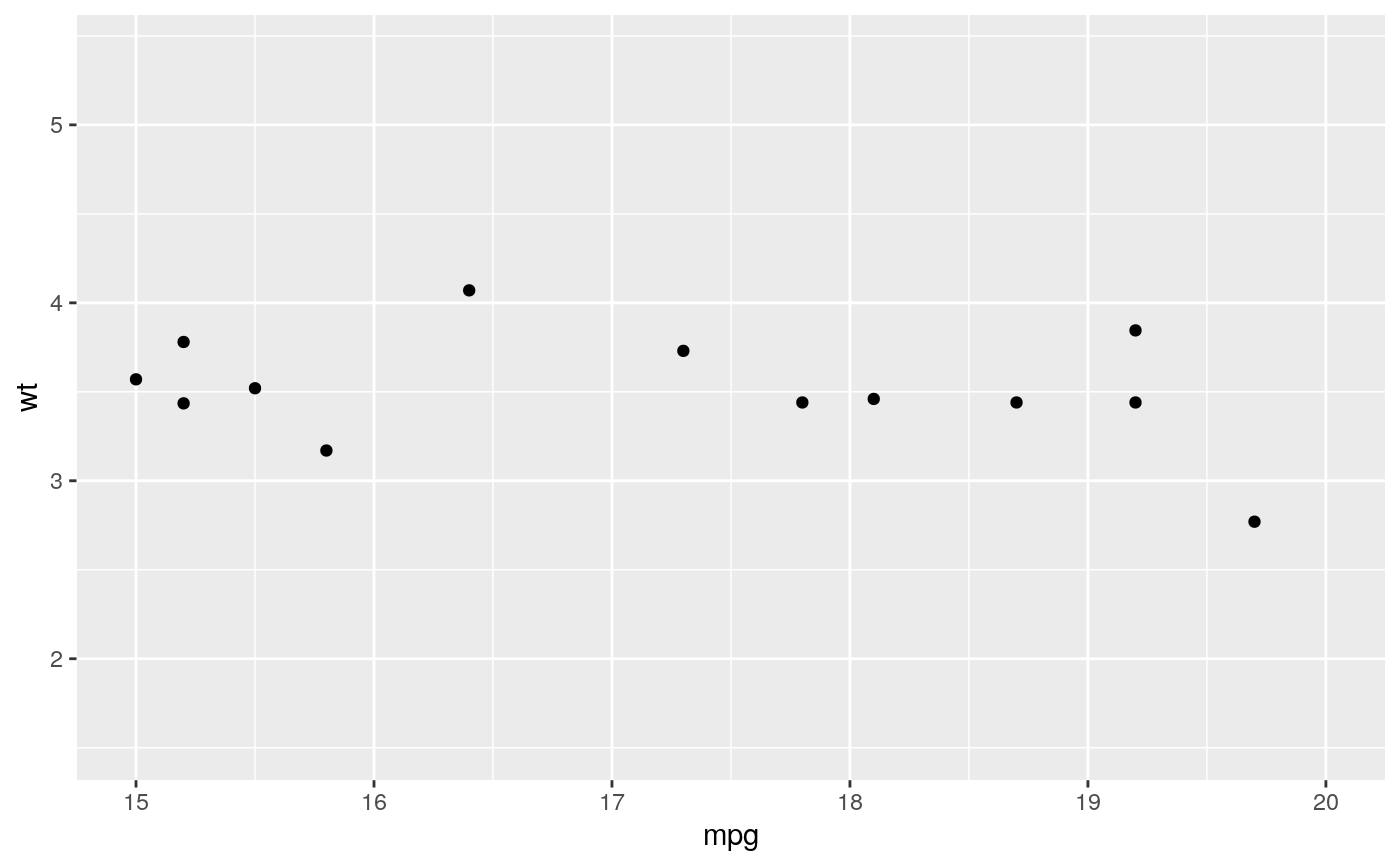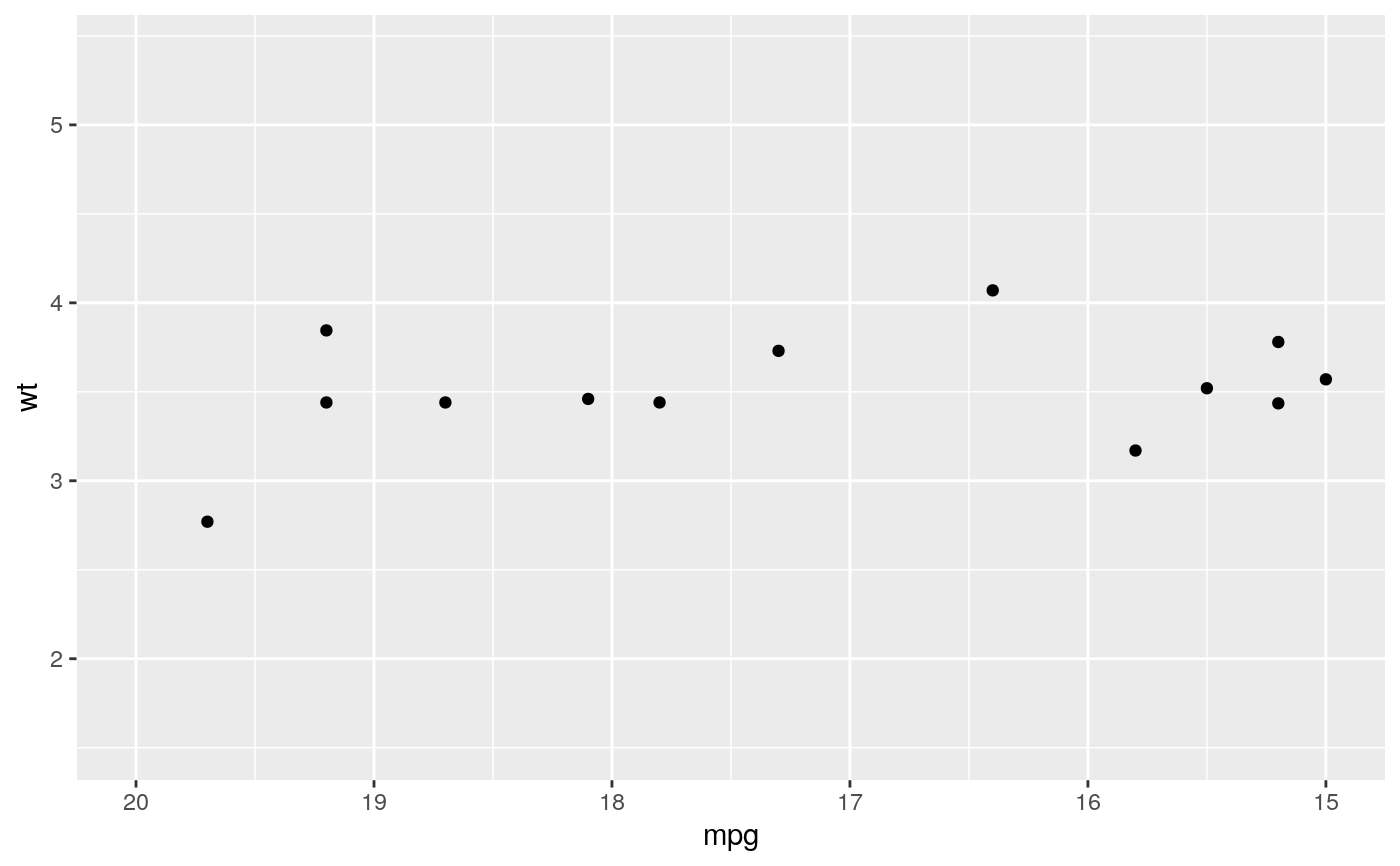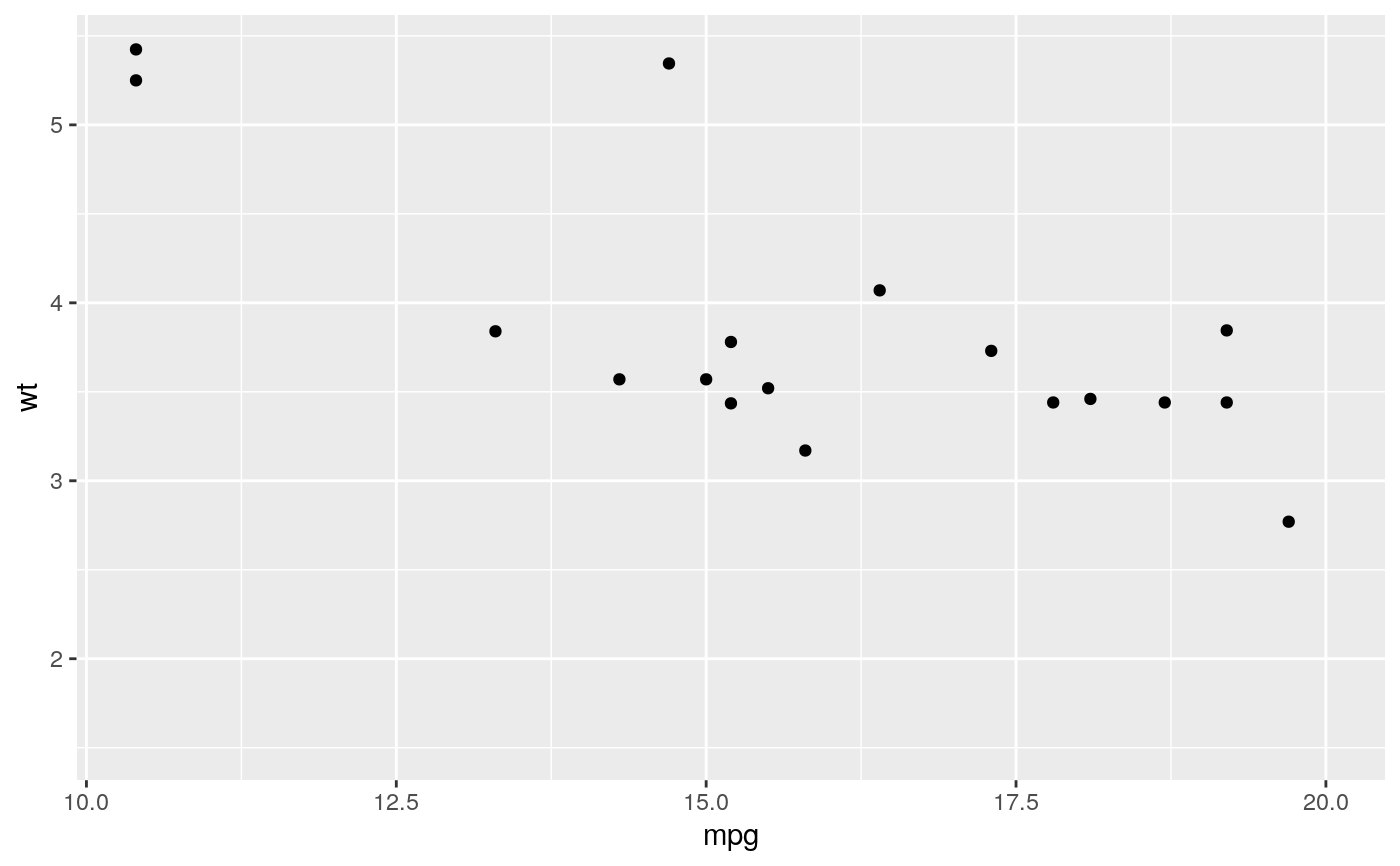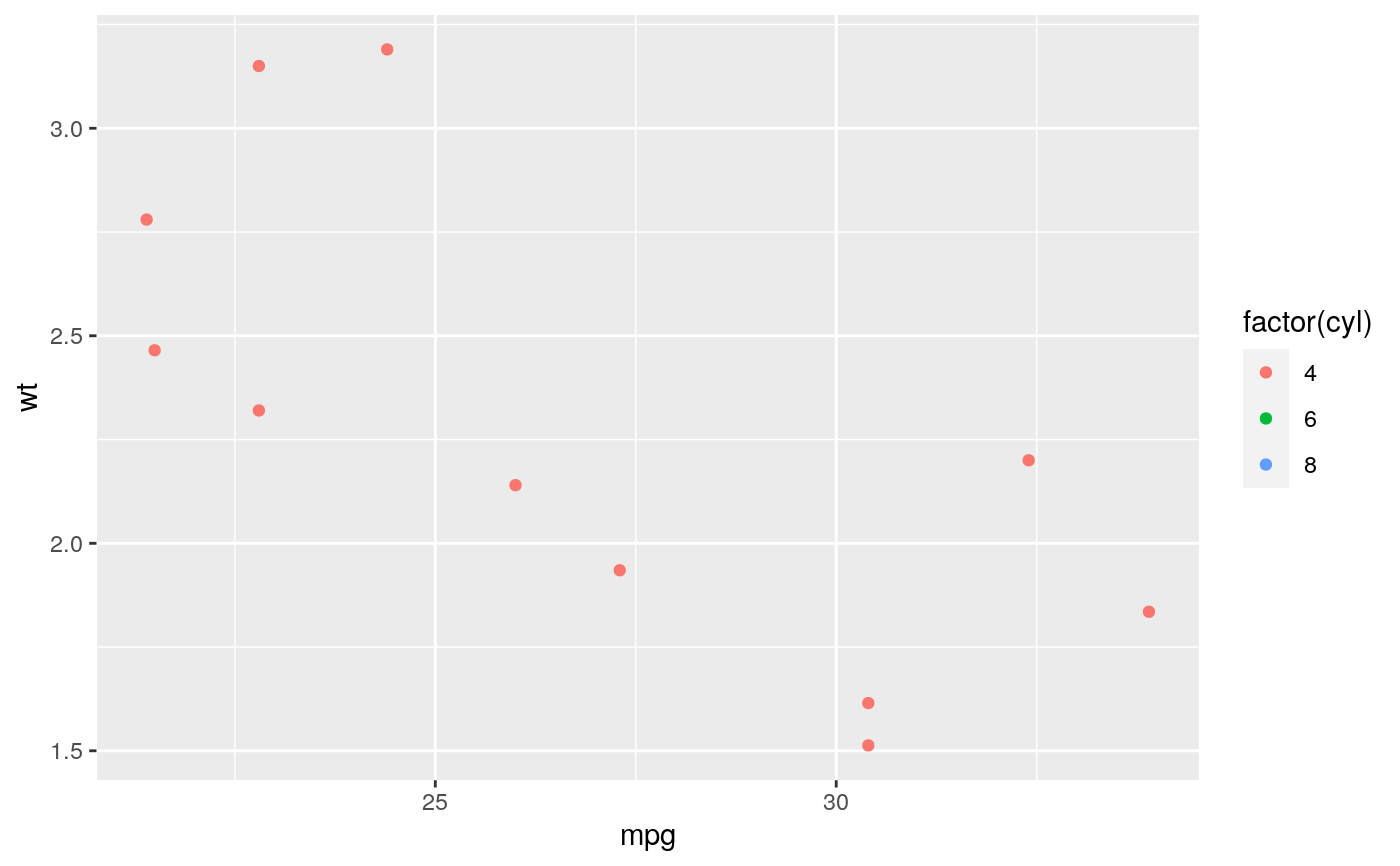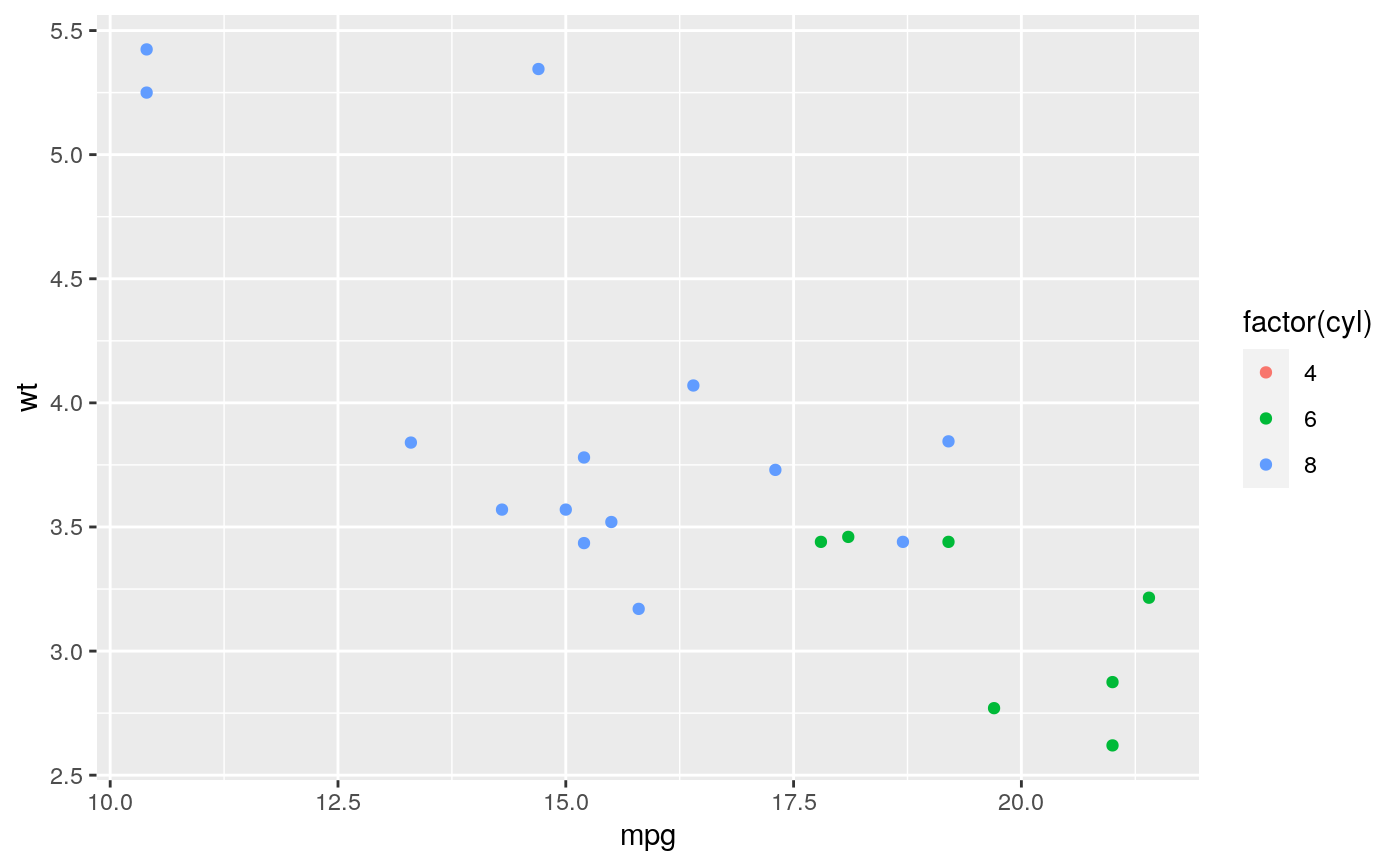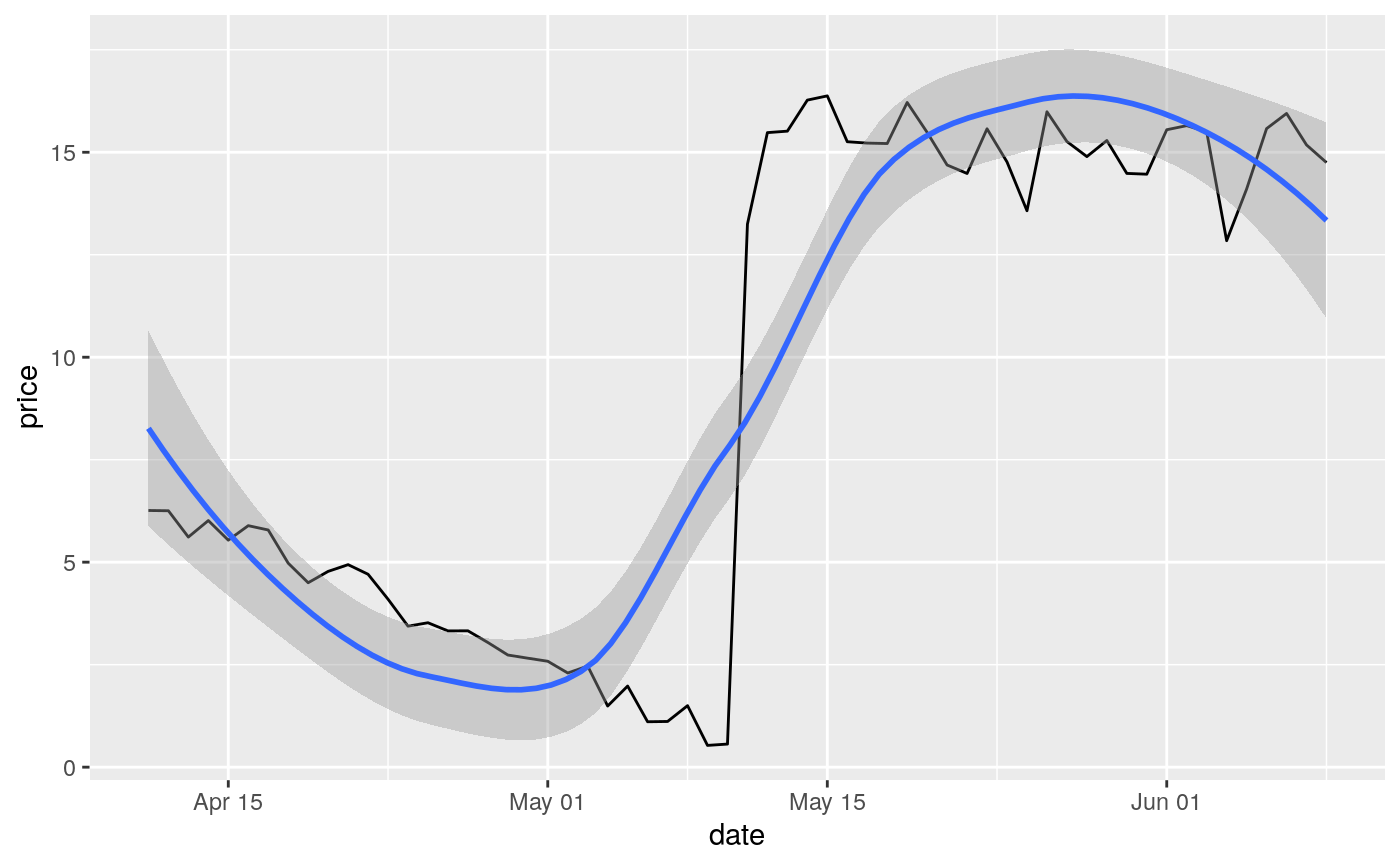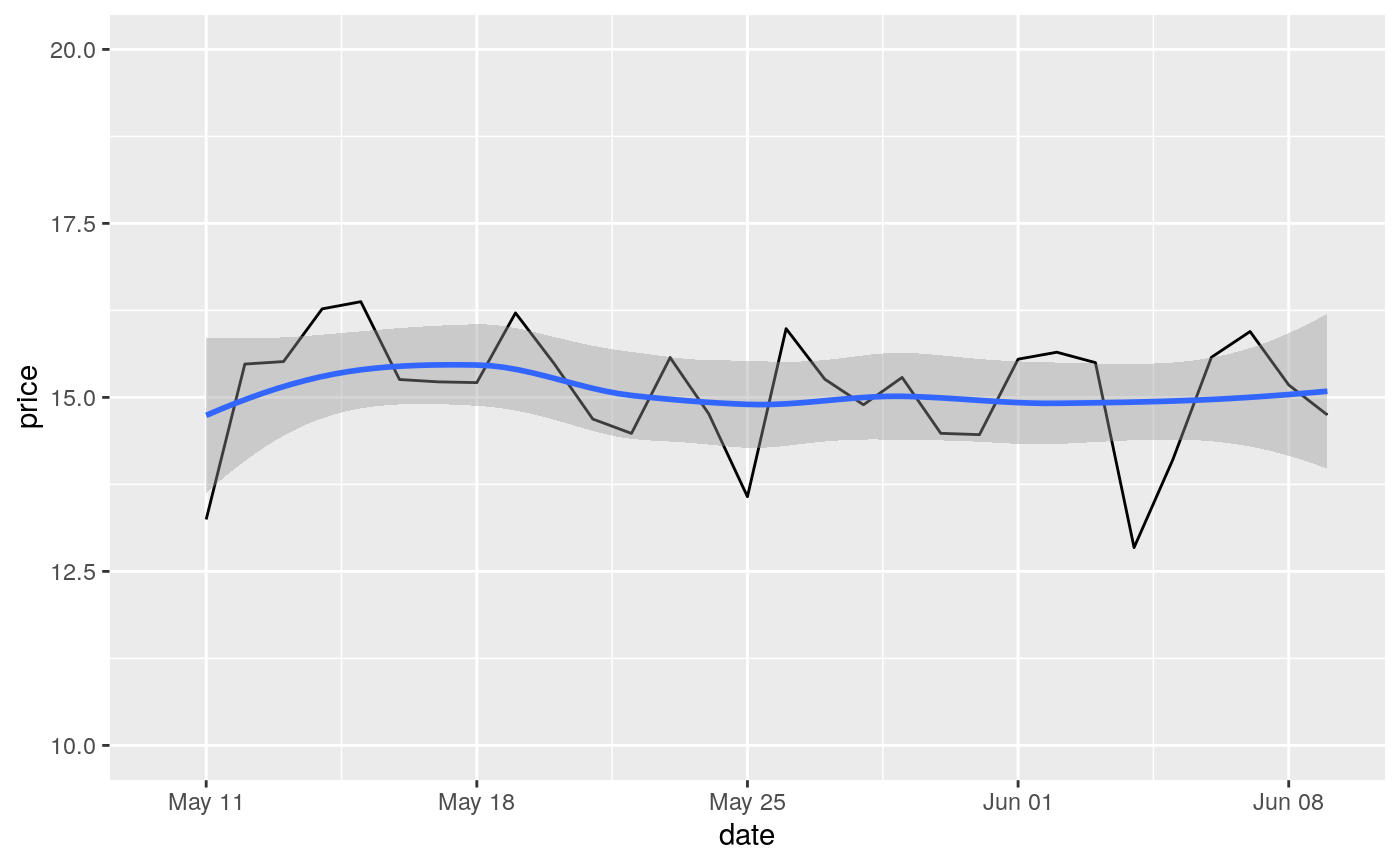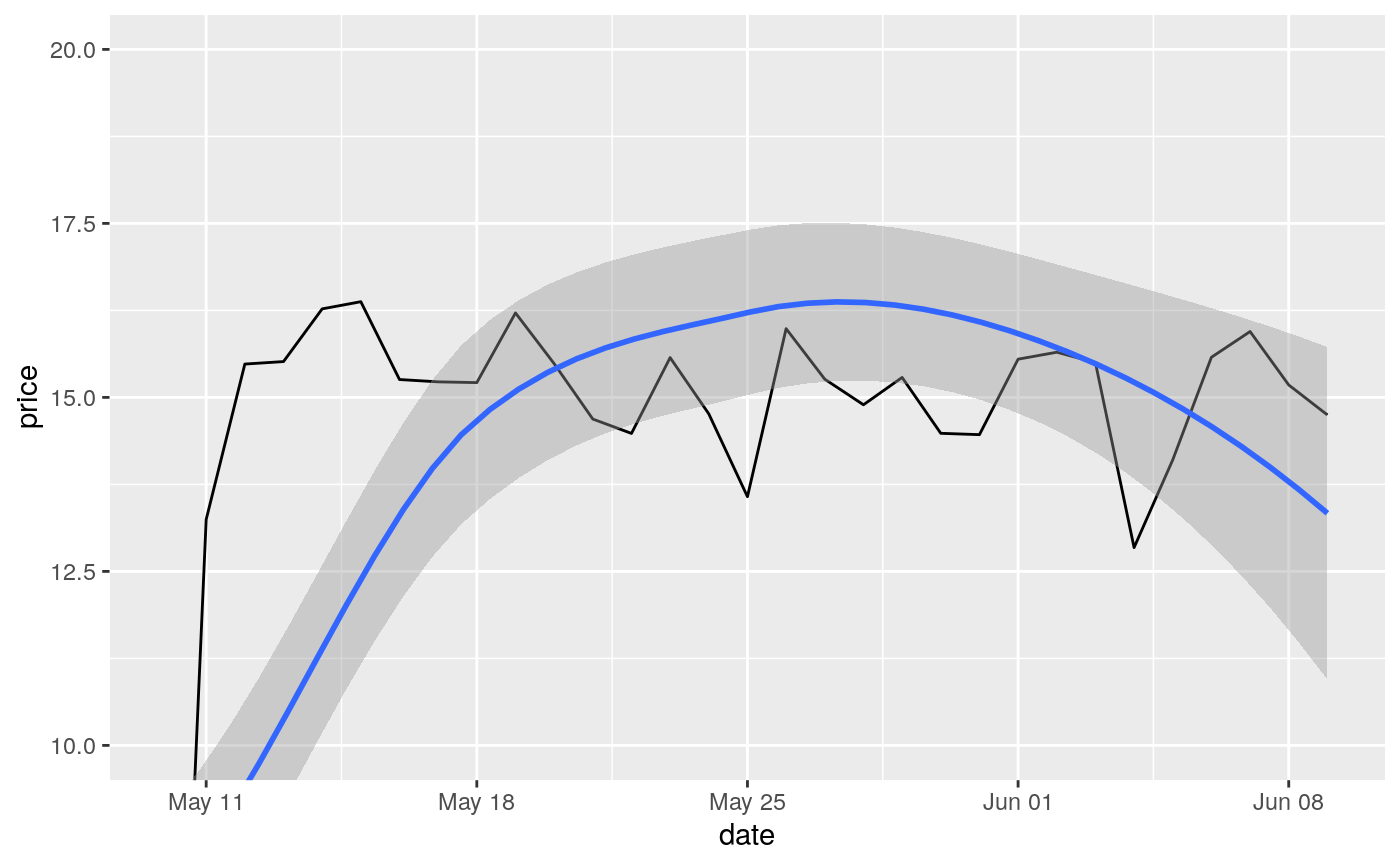This is a shortcut for supplying the limits argument to the
individual scales. Note that, by default, any values outside the limits
will be replaced with NA.
lims(...) xlim(...) ylim(...)
Arguments
| ... | A name-value pair. The name must be an aesthetic, and the value must be either a length-2 numeric, a character, a factor, or a date/time. A numeric value will create a continuous scale. If the larger value
comes first, the scale will be reversed. You can leave one value as
A character or factor value will create a discrete scale. A date-time value will create a continuous date/time scale. |
|---|
See also
For changing x or y axis limits without dropping data
observations, see coord_cartesian(). To expand the range of
a plot to always include certain values, see expand_limits(). For other
types of data, see scale_x_discrete(), scale_x_continuous(), scale_x_date().
Examples
#> Warning: Removed 19 rows containing missing values (geom_point).#> Warning: Removed 19 rows containing missing values (geom_point).#> Warning: Removed 14 rows containing missing values (geom_point).# You can also supply limits that are larger than the data. # This is useful if you want to match scales across different plots small <- subset(mtcars, cyl == 4) big <- subset(mtcars, cyl > 4) ggplot(small, aes(mpg, wt, colour = factor(cyl))) + geom_point() + lims(colour = c("4", "6", "8"))# There are two ways of setting the axis limits: with limits or # with coordinate systems. They work in two rather different ways. last_month <- Sys.Date() - 0:59 df <- data.frame( date = last_month, price = c(rnorm(30, mean = 15), runif(30) + 0.2 * (1:30)) ) p <- ggplot(df, aes(date, price)) + geom_line() + stat_smooth() p#># Setting the limits with the scale discards all data outside the range. p + lims(x= c(Sys.Date() - 30, NA), y = c(10, 20))#>#> Warning: Removed 30 rows containing non-finite values (stat_smooth).#> Warning: Removed 30 row(s) containing missing values (geom_path).# For changing x or y axis limits **without** dropping data # observations use [coord_cartesian()]. Setting the limits on the # coordinate system performs a visual zoom. p + coord_cartesian(xlim =c(Sys.Date() - 30, NA), ylim = c(10, 20))#>
